Bushido Explained
Share
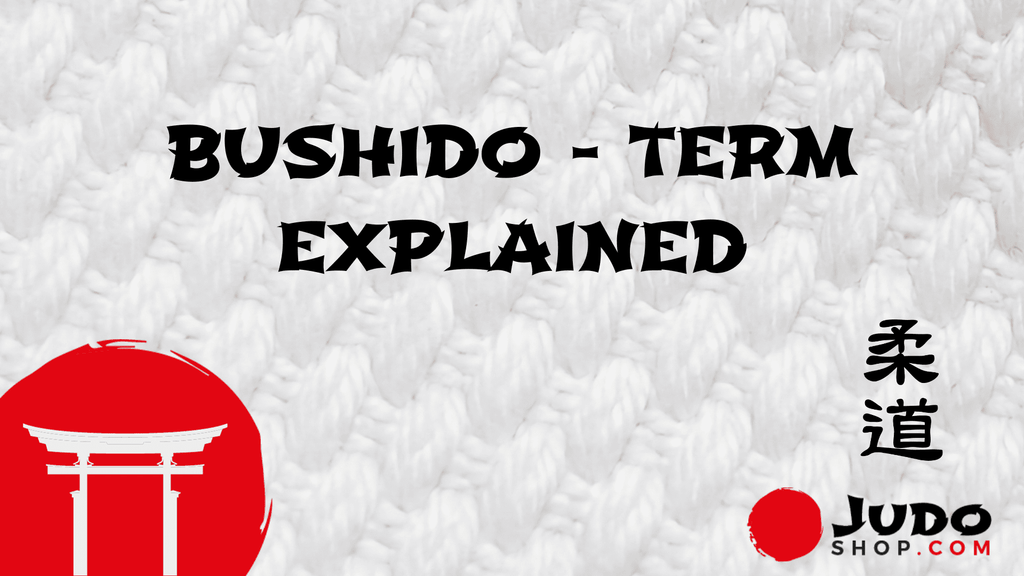
Bushido, the traditional code of ethics followed by samurai warriors in feudal Japan, is a subject that fascinates and intrigues many.
This article explores Bushido's origins, influence, and historical development, shedding light on its impact on Japanese society and its enduring legacy.
Developed during the Kamakura period and shaped further in the Edo period, Bushido encompassed moral values, societal roles, and the pursuit of honor and virtue.
Over several centuries, these warrior principles gradually solidified into a code, especially during the Tokugawa Shogunate, a period of samurai dominance in Japan that started in the early 12th century.
Although the samurai class was disbanded, the legacy of Bushido continues to shape Japanese culture profoundly.
Key Takeaways
- Bushido is a moral code and ethical framework that developed among the samurai class in Japan between the 16th and 20th centuries.
- It was influenced by Neo-Confucianism, Shinto, and Zen Buddhism, and various Japanese clans interpreted and practiced bushido in their way.
- Bushido encompassed morality, societal roles, and living a life with honor and virtue, but there was no singular definition or path.
- The concept of bushido has had a lasting impact on Japanese society and continues to exist in various forms, including in Japanese culture, business, martial arts, and communication.
Origin and Definition of Bushido
The origin and definition of bushido are discussed in depth in the historical texts. Bushido, the moral code of the samurai, was developed and refined during the Kamakura period.
It continued to evolve between the 16th and 20th centuries, influenced by Neo-Confucianism, Shinto, and Zen Buddhism. The term 'bushido' is a compound of 'bushi' (warrior) and 'do' (way), referring to the way of the warrior.
Different clans interpreted and practiced bushido in their own way, leading to variations in its definition and application.
The code encompasses morality, societal roles, and living a life with honor and virtue.
Notable samurai, such as Miyamoto Musashi and Yamamoto Tsunetomo, wrote extensively about their interpretations of bushido.
The historical development of bushido is a complex and multifaceted topic that reflects the changing requirements on the battlefield and in society.
Influence and Legacy of Bushido
An article on bushido explores the lasting influence and legacy of the samurai code on Japanese society.
Bushido, the ethical code followed by the samurai, has had a profound impact on various aspects of Japanese culture.
Despite the abolishment of the samurai class during the Meiji restoration, the principles of bushido continue to exist in different forms.
Japanese society, business practices, martial arts, and even communication methods have been influenced by the values espoused in bushido.
While it is often portrayed as a specific moral code for all samurai, interpretations of bushido varied among different samurai clans and individuals.
The concept of bushido has been both mythologized and romanticized, but in reality, samurai were practical warriors on the battlefield.
The idea of bushido spread through popular writings and publications and gained international recognition with the publication of 'Bushido: The Soul of Japan' in 1899.
Bushido has left a profound and lasting impact on Japanese society, shaping its values and traditions.
Historical Development of Bushido
One can trace the historical development of bushido back to the Heian period, where the samurai class gradually gained control and the values of bushido first appeared as unwritten customs.
During this period, the Emperor and his court were figureheads as the samurai took over and established a military government called the bakufu in Kamakura.
The development of bushido can be linked to the rise of feudal Japan and the first shogun, Minamoto no Yoritomo.
As the samurai class seized control, bushido gradually became a moral dimension in the warrior culture.
Different types of bushido emerged in each era, reflecting changing requirements on the battlefield and in society.
The influence of religions such as Buddhism, Zen Buddhism, Shinto, Taoism, and Confucianism played a significant role in shaping the principles of Bushido.
Overall, the historical development of bushido is intricately tied to Japan's political and social changes throughout the centuries.
| Historical Development of Bushido | |
|---|---|
| Heian Period | Samurai gain control |
| Kamakura Period | Samurai establish bakufu |
| Feudal Japan | Rise of bushido |
Influence of Religion on Bushido
Buddhism and Shinto, among other religions, influenced bushido by instilling a religious respect for the code and balancing martial arts skills with peaceful accomplishments.
The influence of these religions on bushido led to a harmonious integration of spiritual and martial aspects in the lives of samurai.
Buddhism, emphasizing non-violence and the impermanence of life, prohibited killing living beings and instilled a sense of compassion and mindfulness in samurai warriors.
On the other hand, Shinto celebrated the natural world and the spirits that resided within it, encouraging reverence for nature and the pursuit of harmony with the world around them.
Together, these religious influences shaped the core values of bushido, emphasizing honor, loyalty, self-discipline, and a deep connection to the spiritual realm.
Idealized Portrayal of Warriors and Historical Context of Bushido
The idealized portrayal of warriors in a historical context highlights the cultivation of warriors' skills in literature, poetry, and the tea ceremony, showcasing their multifaceted abilities.
- Literature: Warriors in ancient Japan were skilled in combat and valued for their literary talents.
They were expected to write poetry, compose songs, and participate in storytelling. These artistic pursuits were seen as essential for a well-rounded warrior.
- Poetry: Samurai warriors were known for their poetic skills and were often expected to compose and recite poetry as part of their social and cultural responsibilities.
Poetry was a way to express emotions, reflect on nature, and communicate with others.
- Tea ceremony: The tea ceremony, known as chanoyu, was an essential aspect of samurai culture.
Warriors would participate in the tea ceremony to demonstrate their refinement, grace, and respect for tradition. It was seen as a way to cultivate inner peace and harmony.
Through their involvement in literature, poetry, and the tea ceremony, warriors demonstrated their physical prowess and intellectual, artistic, and spiritual abilities.
This idealized portrayal of warriors in a historical context reflects the multifaceted nature of the samurai class.
Evolution of Bushido Over the Centuries
Bushido has evolved and adapted throughout the centuries, shaping its principles and values in response to changing societal and cultural dynamics.
Initially, the values of bushido appeared as unwritten customs in the 12th century, focused solely on valor in battle.
However, as time passed, different types of bushido emerged, reflecting the changing requirements on the battlefield and in society.
The samurai class gradually gained control during the Heian and Kamakura periods, and the development of bushido can be traced back to this time.
Influenced by religions such as Buddhism, Zen Buddhism, Shinto, Taoism, and Confucianism, bushido found a balance between martial arts skills and peaceful accomplishments.
It became a moral dimension in the warrior culture, with samurai becoming societal role models, embodying bravery, loyalty, and family honor.
Today, bushido continues to exist in various forms, shaping the values and principles of Japanese culture, business, martial arts, and communication.
The Role of Samurai in Japanese Society
Samurai played a crucial role in Japanese society as they upheld the bushido code, emphasizing honor, loyalty, and martial skills.
They were highly respected and held positions of power and influence. Here are three key aspects of their role:
- Protectors of the realm: Samurai were the warriors who defended their lords and the land. They were trained in various combat techniques and skilled in using weapons such as swords and bows. Their duty was to protect their lord and maintain peace within their territory.
- Guardians of honor: Samurai placed great importance on honor and lived by a strict code of conduct. They were expected to demonstrate unwavering loyalty, integrity, and moral virtue. Any act that brought shame or dishonor was seen as a betrayal of their code and could result in severe consequences.
- Role models for society: Samurai were warriors and served as role models for the rest of the community. They were expected to exhibit physical strength and intellectual and cultural refinement. Many samurai were skilled in arts like calligraphy, poetry, and tea ceremony, which reflected their well-rounded education and cultivation of the mind.
Overall, samurai embodied the warrior ideal in Japanese society, upholding the bushido code and setting an example for others to follow.
Samurai Code of Conduct and Values
Some samurai clans embraced and embodied the principles of bushido, while others followed different interpretations of the code.
Bushido, the moral code and way of the warrior, varied among the various clans and individuals.
While there were shared values such as loyalty, honor, and courage, bushido's specific virtues and laws were not universally defined.
Depending on their historical and cultural context, different clans had their interpretations of the code.
Some clans emphasized particular virtues more than others, while others may have adopted different codes altogether.
This diversity within the samurai class reflects the complex nature of bushido and how it evolved.
Despite these variations, bushido remained a central aspect of samurai culture and influenced their conduct and values.
Bushido in Japanese Culture, Business, and Martial Arts
Incorporating the principles of bushido into their practices, many Japanese martial arts schools continue to uphold the code's values while emphasizing discipline and respect.
These schools understand the importance of instilling these values in their students for their development as martial artists and as individuals.
- Discipline: Martial arts require a great deal of discipline, both in training and in daily life. Students are taught to be focused, committed, and self-motivated.
- Respect: Respect is a fundamental aspect of bushido. Students are taught to respect their instructors, fellow students, and art.
This includes showing respect through bowing, following proper etiquette, and treating others with kindness and humility.
- Honor: The concept of honor plays a significant role in bushido. Students are encouraged to act with integrity, honesty, and loyalty. They are taught to uphold their commitments, maintain a strong work ethic, and always strive to do their best.
By incorporating these principles, martial arts schools aim to teach self-defense techniques and cultivate individuals who embody the values of bushido.
International Perception and Impact of Bushido
How has Bushido's international perception and impact evolved over time, and what role does it play in shaping cultural understanding and practices today?
Bushido, the samurai code of ethics and moral values, has significantly changed its international perception and impact.
Initially, bushido was primarily associated with the warrior class in feudal Japan, but with the publication of Nitobe Inazō's book "Bushido: The Soul of Japan" in 1899, it gained international attention and became synonymous with Japanese culture.
Today, bushido continues to shape cultural understanding and practices, not only in Japan but also worldwide.
It has become a symbol of honor, discipline, loyalty, and self-sacrifice.
Many consider bushido a source of inspiration for personal development, leadership, and ethical behavior.
Additionally, bushido's influence can be seen in various aspects of Japanese society, including business practices, martial arts, and even popular culture.
Bushido is crucial in shaping cultural values and practices within Japan and beyond its borders.
Frequently Asked Questions
What are Japanese warriors called?
Samurai refers to the Japanese warrior class. Initially, the term "samurai" signified the elite warriors or bushi, but over time, it expanded to encompass the entire warrior class.
This class ascended to prominence in the 12th century and held sway over Japanese governance until the Meiji Restoration in 1868.
What is a true samurai?
An authentic samurai confronts an enemy only when truly necessary.
What Are Some Common Misconceptions About Bushido?
Some common misconceptions about bushido include the belief that it was a singular moral code for all samurai when interpretations varied. Additionally, the idea that samurai were purely romanticized warriors is inaccurate.
How Did the Concept of Bushido Influence the Daily Lives of Samurai?
The concept of bushido influenced the daily lives of samurai by providing a moral code and a sense of honor and virtue. It guided their behavior, shaped their societal roles, and emphasized the importance of a disciplined and honorable life.
What Role Did Women Play in the Practice of Bushido?
Women played a limited role in the practice of bushido. They were expected to embody virtues such as loyalty and obedience, but their primary role was to support the samurai and maintain the household.
Were There Any Notable Samurai Who Rejected or Challenged the Principles of Bushido?
Some notable samurai rejected or challenged the principles of Bushido. Their reasons varied, but some disagreed with the strict code, while others believed in different philosophies or pursued personal goals.
How Did the Abolishment of the Samurai Class During the Meiji Restoration Impact the Practice of Bushido?
The abolishment of the samurai class during the Meiji Restoration greatly impacted the practice of bushido. The traditional values and code of conduct associated with bushido began fading with the end of samurai rule.
Conclusion
In conclusion, Bushido, the code of ethics followed by samurai warriors in feudal Japan, still holds a significant place in Japanese society today.
Despite the abolition of the samurai class, its influence can be seen in various aspects of Japanese culture, business, and martial arts.
The question remains: How has the enduring legacy of Bushido shaped the values and ideals of the Japanese people, and what lessons can we learn from its emphasis on honor and virtue?
Related Posts
-

Kayla Harrison's Judo Journey - Judo Champion Turned MMA Powerhouse
Kayla Harrison is a groundbreaking American judoka who made history by becoming the first American woman to win an Ol...
-

Judo Atlanta - List of Judo Clubs in Atlanta area
In Atlanta, you can find excellent judo clubs such as Atlanta Judo Midtown and Black Ice Fitness where you can train...
-

Guram Tushishvili Disqualified - JUDO DRAMA with Teddy Riner
Guram Tushishvili Disqualified - Unsportsmanlike Behavior to French Judoka Teddy Riner Leads to Disqualification fro...
-

Yeldos Smetov - Judoka Profile
Yeldos Smetov, a name synonymous with excellence in judo, has carved out an illustrious career that stands as a beac...
-

Judo Olympics 2024 Results - Gold, Silver, and Bronze Medalists
The Judo Olympics 2024 Results are eagerly anticipated as the Paris Games approach, promising a thrilling display...
-

Judo For Self Defense - Here Is Why Is Judo Best For Self-Defense
Judo For Self Defense packs a punch. This martial art, born in Japan, turns attackers' strength against them. No nee...
-
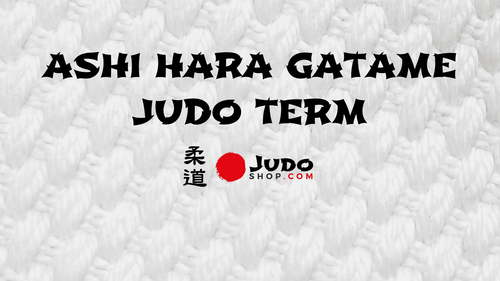
Ashi Hara Gatame - Judo Term Explained
Ashi Hara Gatame is a specialized technique in the martial art of judo, combining leg control, abdominal pressure, a...
-
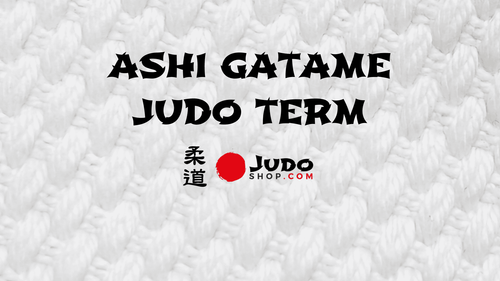
Ashi Gatame - Judo Term Explained
Ashi Gatame is a Judo technique referring to a kansetsu-waza (joint lock) where one uses their legs to immobilise ...
-

Judo Olympics 2024: Highlights, Athletes, and Schedules
Judo Olympics 2024 enthusiasts, mark your calendars! From July 27 to August 3, the Grand Palais Éphémère near the Eif...
-
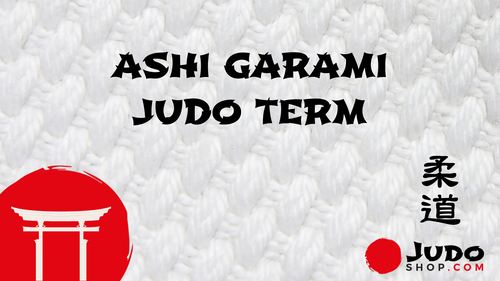
Ashi Garami - Judo Term Explained
What does "Ashi garami" mean in Judo? "Ashi garami" (足緘) is a Japanese term used in Judo that literally translates t...
-
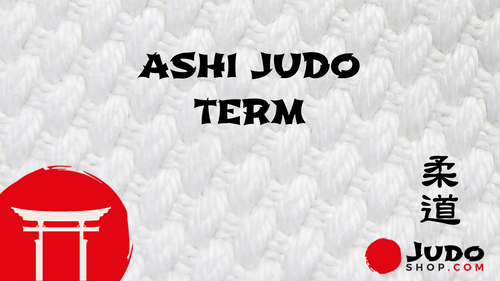
Ashi - Judo Term Explained
Ashi is term in Judo, referring to a leg or foot and category of judo techniques designed to unbalance and throw an ...
-
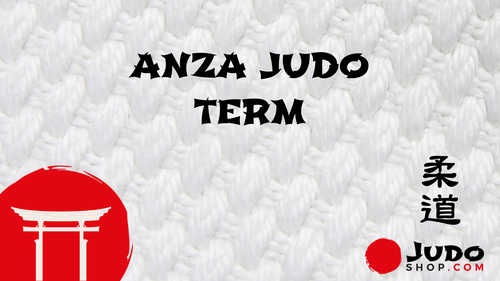
Anza - Judo Term Explained
The term Anza in Judo (安座) embodies a significant practice beyond merely sitting; it signals a deep respect and disc...
-
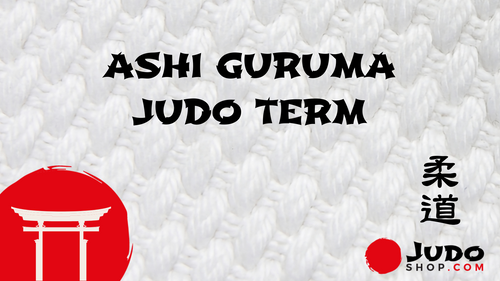
Ashi Guruma - Judo Term Explained
Ashi Guruma is a Judo term rooted in the martial art of Judo, which translates from Japanese as 'leg wheel'. This ju...
-
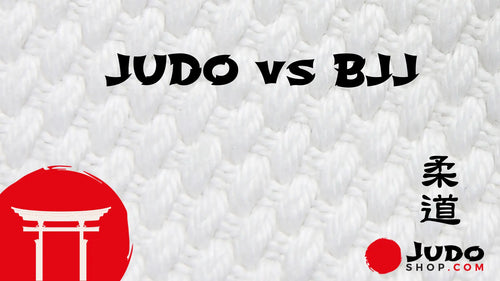
Judo vs BJJ? Of course Judo! Judo is better!
Welcome to Judoshop.com, the premier destination for judo enthusiasts worldwide. Here, we cater to beginners and vet...
-
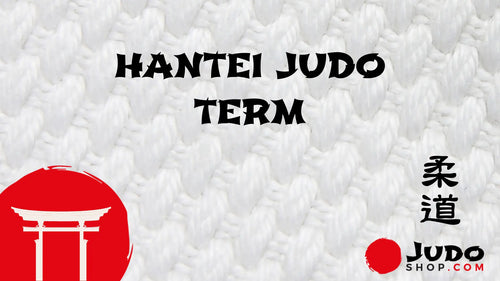
Hantei Judo Term Explanation
Contrary to popular belief, the term 'Hantei' in Judo is not just a simple decision-making process. It holds the p...
-
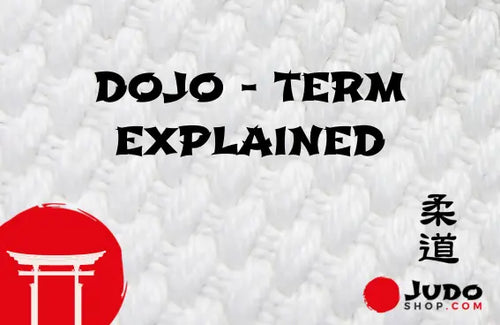
Dojo Meaning (updated 2023)
Dojos, places of immersive learning and meditation, hold great significance in martial arts. Derived from the Japane...
-
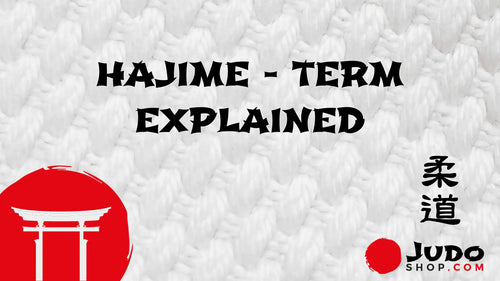
Hajime - Judo Term Explained
Ready to learn about Hajime in judo?It's all about using throws, pins, and joint locks on the mat. With the command ...
-
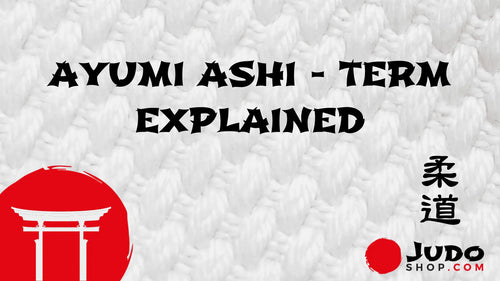
Ayumi Ashi - Judo Foot Work Explained
Are you ready to step into the world of Judo and master the art of Ayumi Ashi - 歩み足? This fundamental footwork techn...
-
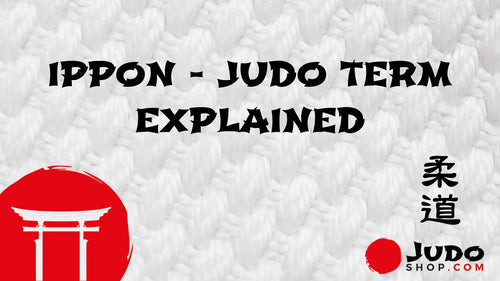
Ippon - Judo Term Explained
Imagine stepping onto the mat and feeling the adrenaline rush through your veins. In the world of judo, one ultimate...
-
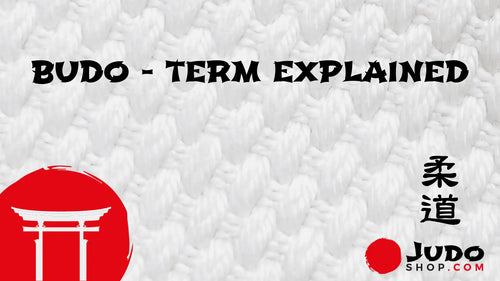
Budo - Term Explained
In a world full of chaos and conflict, one finds solace in the ancient art of budo. Contrary to popular belief, budo...
-
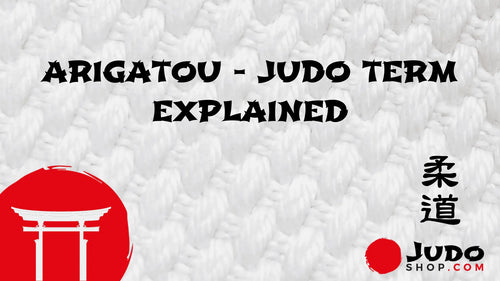
Arigatou - Judo Term Explained
Do you ever wonder about the true meaning behind the Japanese word 'Arigatou'? Well, wonder no more! 'Arigatou' is a...
-
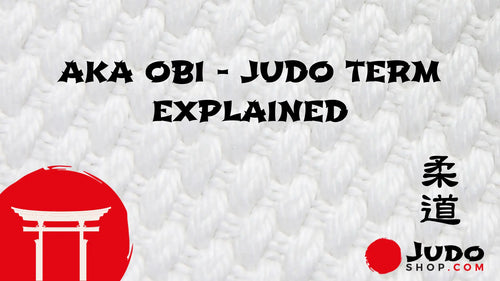
Aka Obi - Judo Term Explained
The aka obi, a red belt worn in Judo, is a prestigious symbol of expertise. Typically reserved for those holding a 9...
-

Why Are There 2 Bronze Medals In Judo
Judo is a unique sport that gives two bronze medals in each weight class. Many people wonder why this is done. To fi...
-
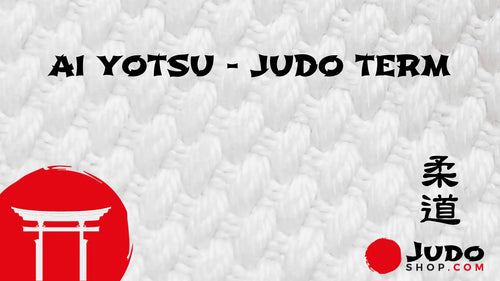
Ai Yotsu - Judo Term Explained
In the world of Judo, a term holds immense significance - Ai Yotsu. This grip, characterized by an intense and intim...
-

Is Judo Dangerous - Unveiling the Shocking Truths Behind this Ancient Martial Art
With its powerful throws and complex grappling techniques, one might wonder, "Is judo dangerous?" Yes, judo can po...
-

Is Judo The Toughest Sport - Unraveling the Grit and Grace of the Gentle Way
Judo, known as the Gentle Way, may seem like a paradoxical name for a sport, but don't let that fool you. While Ju...
-
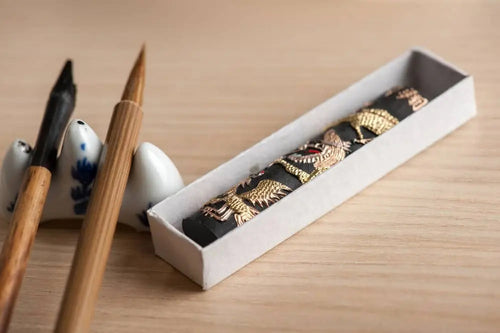
Judo Terms - Complete List Of Judo Terms
Judo terms are the foundation of this martial art...
-
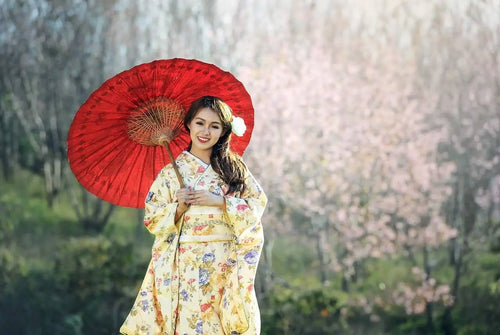
English to Japanese Kanji and Hiragana translations
Are you looking for an English to Japanese Kanji translation? Here you can find more than 30 examples of Kanji and ...




























